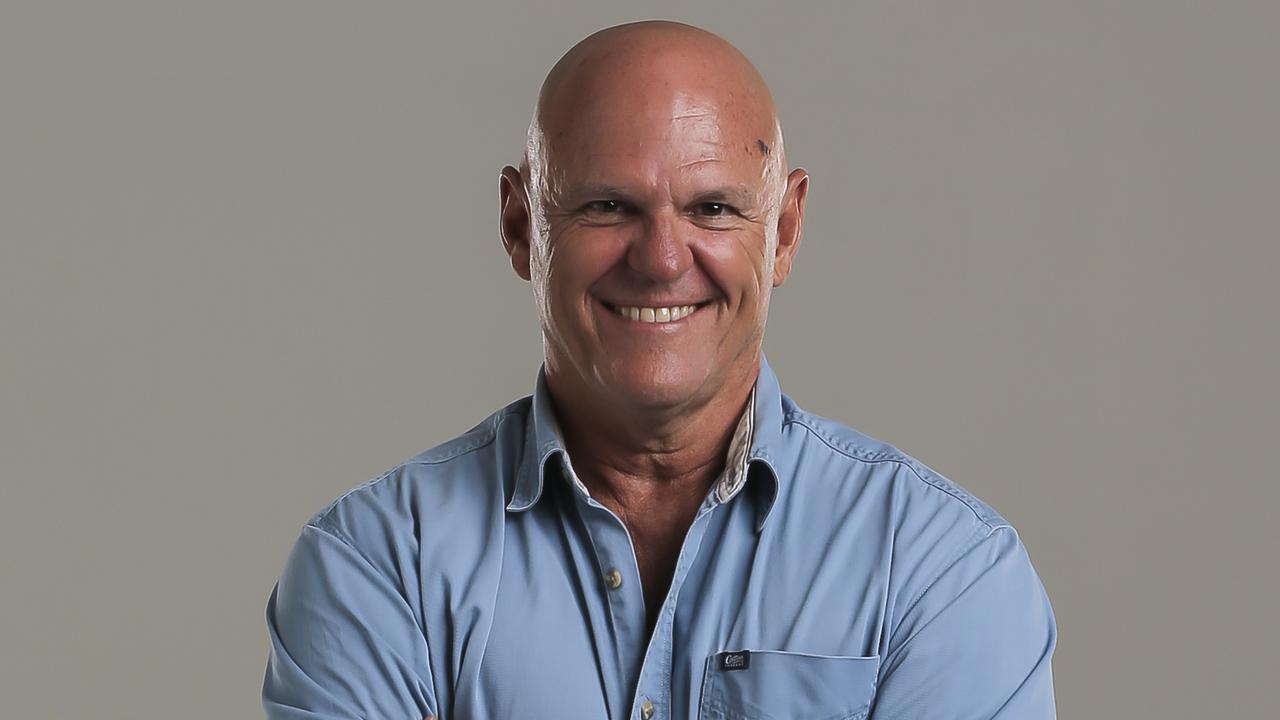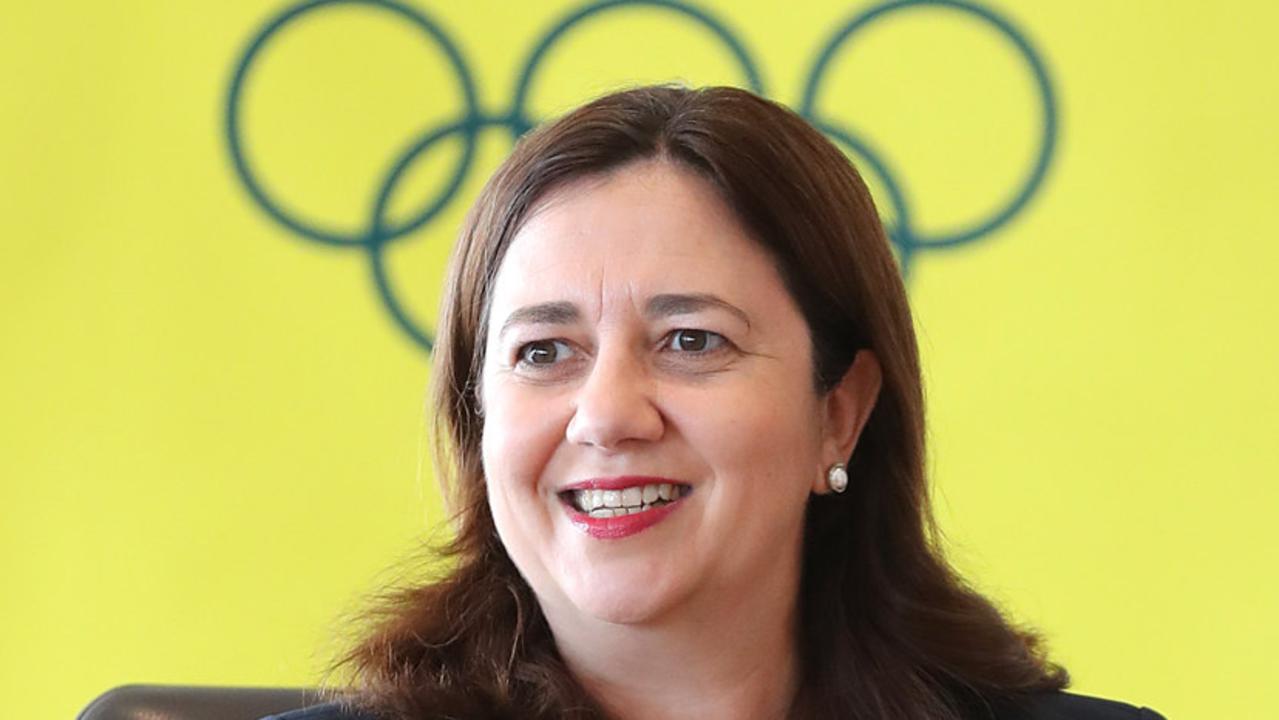QFES boss taking no prisoners in mission to level the playing field
SINCE Katarina Carroll took over as QFES commissioner in 2016 she’s been busy extinguishing problems that led to claims the service was ‘toxic’ for women, writes Thomas Chamberlin.

WHEN Katarina Carroll took the helm of Queensland’s fire service in August 2015, it was engulfed in a sexual harassment scandal.
Pictures of female firefighters had been posted to Facebook, with some of their male colleagues rating who would be best in bed.
Complaints were said to have been ignored or not properly handled, in what was described as a “hostile” and “toxic” workplace for women. People were stood down and external investigations were ordered.
Then-commissioner Lee Johnson said he would retire early to give the service a fresh start.
So bad was the culture, then-premier Campbell Newman said he did not believe the outgoing commissioner understood the gravity of the situation.
It was “not about just a few bad apples” — reform was needed.
“If you want a parallel, this to me is what had to happen at the start of the ’90s, post-Fitzgerald, in the Queensland Police Service,” Newman said. “There were deep-seated cultural issues.”
Enter Carroll, with three decades as a police officer, and a seasoned detective of 15 years. She is a former licensing branch, drug squad, criminal investigation branch, internal investigation and joint organised crime taskforce officer.
As assistant commissioner of police, she had just headed the state’s G20 policing operation that successfully protected US president Barack Obama and British prime minister David Cameron in Brisbane.

Ten months before Carroll took over, a damning report from former bureaucrat Margaret Allison had been released, detailing the extreme difficulties three female firefighters encountered trying to have complaints investigated.
There was a culture that, at best, “was awkward about and unprepared for the inclusion of women in its ranks, and, at worst, actively and overtly hostile”, the report said.
Allison was told of “systemic problems in the organisation regarding harassment and bullying”.
“You girls should just get over it,” one of the complainants was told.
Every female firefighter interviewed for the report had been told women were not wanted in the service.
One female interviewed said that on her first day she was told: “I don’t want you here. I don’t want to see you, I don’t want to smell you and I don’t want your girlie deodorant in my truck.”
Carroll was appointed interim commissioner of the Queensland Fire and Emergency Service and then successfully applied for the top job. But as an outsider, taking over as boss during such a turbulent time was not easy.
Was there an added difficulty being a woman taking over a male-dominated profession?
“That wasn’t the case,” Carroll says. “It was difficult because I came from a different background and I went into a new agency.”
Carroll says what happened to the women was “tragically unfortunate”.
She speaks about the saga from a literal “drawing board” of a room — one in which brainstormed ideas are written on a wall — in a donga, or makeshift office, while hers is being renovated at QFES headquarters.
Allison had written that, in some cases, it was openly asserted that “sexual favours must have been provided in exchange for successful completion of the academy program”.
“There were a few horrendous comments made about women by a small number of people,” says Carroll, who performs her role while parenting two teenagers.
“But I would think that if you asked my women (now), they would say they have the best job in the world because it is an amazing profession.”
Despite the scathing report, Carroll says problems were not, in fact, systemic, but when sexual harassment issues came before fire bosses, they were not dealt with appropriately.
“And that was one of the biggest downfalls,” she says.

Carroll says despite having relatively few women in the service, she won’t be setting any sort of gender targets like those introduced to the Queensland Police Service.
While the number of women in the organisation has increased from 4 per cent to about 6.5 per cent, this reflects the application pool of 10 per cent women and 90 per cent men, with an attrition rate of 1.1 per cent.
“We want to have women say, ‘this is what I want to do’, and attract more women into that pool to get them through the process. And when you do that and you can do it authentically, it’s very credible.”
Carroll, who is deputy president of the Australasian Fire and Emergency Services Authorities Council board, says all fire services have the same challenges attracting women.
They’ve introduced a new slogan, “All in, all fronts”, as part of the recruitment push.
However, Carroll says the physical and technical tests are the hardest parts to pass to get in.
“I often have people say to me, ‘Oh, have you dropped the standards to get women in?’,” she says. “That’s never going to be the case. It is gruelling; it is technical; it is physical.”
Carroll says she has seen men and women fail by just one or two seconds.
“And if you fail that gruelling physical component by one or two seconds, I’m sorry, that’s just it. Off you go, and you come back again when you are ready,” she says.
But more women are rising in the ranks, including two female inspectors in the rural service and two chief superintendents in fire and rescue.
“I would have by far the highest ranking and most of the highest ranking women around the country,” Carroll says. “And that’s due to their merit that they got to those positions.”

Carroll says her leadership team has been “extraordinarily proactive” about behaviour and conduct in the workplace.
The agency has implemented almost all of the recommendations from the Allison report, which also found no one had been sacked over a 2½-year period.
“In recent years we have dismissed people and demoted people as a result of their conduct in the workplace,” Carroll says. “Not only just dismissed and demoted, but disciplined, reprimanded. I used to be a detective so I probably have more of a hard line about it.”
Some of these actions saw an inspector and a station officer stood down over allegations the inspector helped one company become a preferred QFES uniform supplier and the officer helped a decontamination service, and for receiving paid consultancy work from the companies.
Fire and Emergency Services Minister Craig Crawford says Carroll’s policing background has helped her lead at a high level.
He says the police and ambulance services had already undergone reforms, while the fire service’s were still continuing, with the Allison review a catalyst for change.
“I think everyone was shocked when they saw the incident that led to the Allison review,” says Crawford, a former paramedic.
“I don’t think anybody in the organisation should be able to condone that sort of conduct in this day and age. To say whether it still exists in the organisation, I’d like to say no, it doesn’t, but chances are it probably does.”

Crews, he says, are aware of the changes taking place.
“If you talk to a firefighter who has been on the job for five or 10 years, it’s perfectly normal to have women in the workplace and equality is a no-brainer for them.
“But sometimes there is still a little hesitation from staff who have been around a lot longer.
“I’m obviously very biased, but I would be saying to women out there that if you are interested in a career in police or the military or ambulance or fire, have a look at fire because our people don’t leave — they stay right through to retirement.”
With a workforce of 42,000 volunteers and 5000 permanent staff, Carroll says the organisation — an amalgamation of Fire and Rescue, Rural Fire Service, State Emergency Service and Emergency Management Queensland — has changed its core role of fighting fires.
“It’s not just fires,” Carroll says. “I think the research clearly shows you the volatility of events has changed dramatically. And we see that in terms of cyclones and floods and fires. Climate change is having an impact on us.”
Carroll says she doesn’t know what’s in store for her when her contract expires in 2020.
“Because I’m 54, I still have a lot of work life left. So I would be, at some stage, looking to do something different. I do not believe you should be a commissioner more than about seven to 10 years.”
After this length of time in office, Carroll believes you run out of ideas.
But does she have the ambition to be commissioner of Queensland Police?
“If it was vacant, I would probably put in for it, but then, in the meantime, there are other opportunities that I would put in for as well,” she says. “It’s all in the matter of timing. I would say never say never.”


